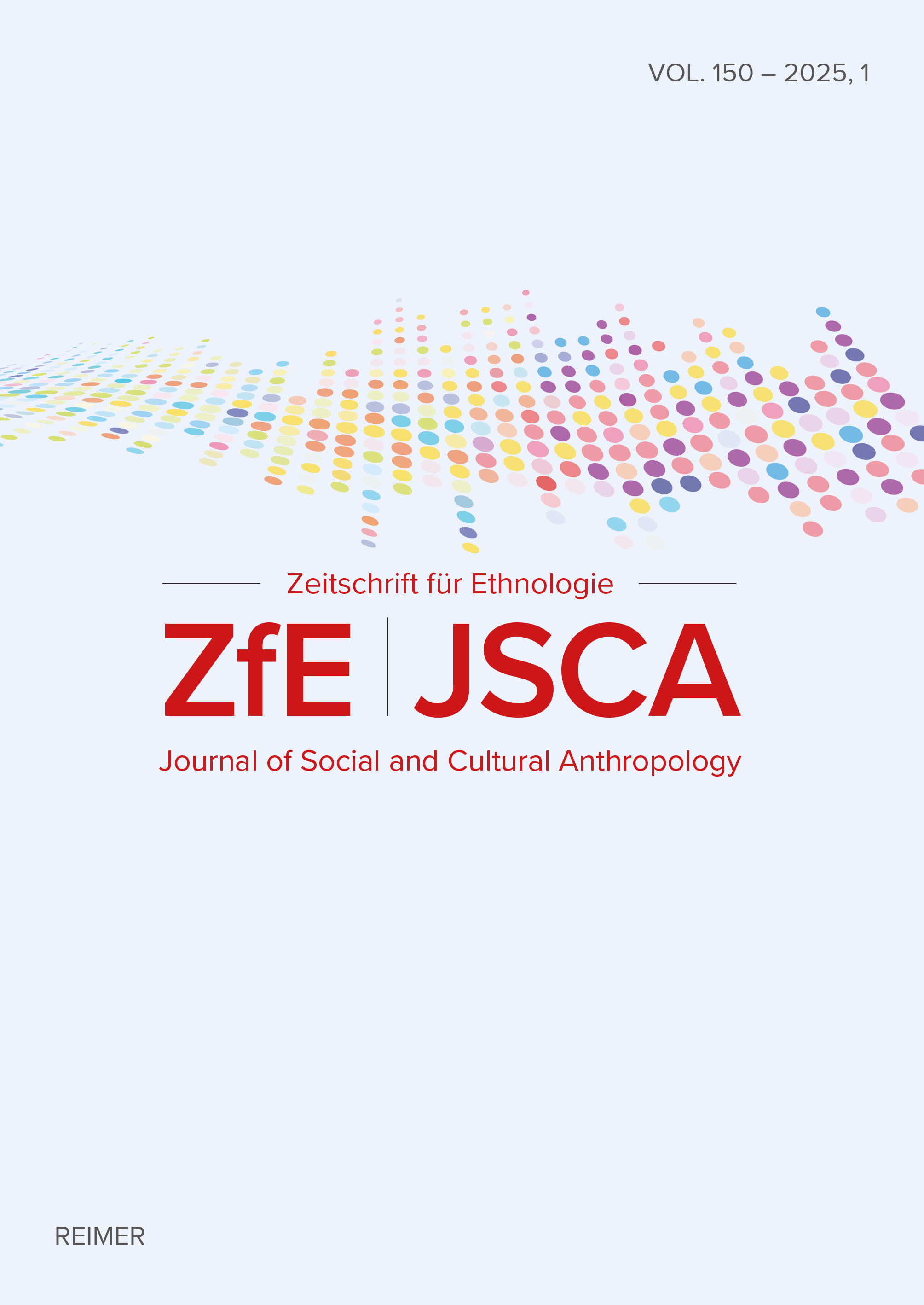The workshop at home. Making sense of craft as a social practice among Tuareg artisans in Niger
Main Article Content
Abstract
This article draws on my dissertation on Tuareg craftsmanship in Niger as a social practice, which was published under the title ‘Die Unbeständigkeit der Dinge: Handwerk, Familie und Mobilität bei den Tuareg in Niger’ (The Impermanence of Things: Craft, Family and Mobility among the Tuareg in Niger) (2024). It explores craft as an embodied knowledge acquired and shared within the family. First, I show how I approached handicraft methodologically from an anthropological perspective. My entry into craft was my own bodily experience in touching, treating and shaping leather, wood and silver. I understood craft as a perception of the world, of tools and things, and studied the materiality and possibilities Tuareg artisans see in them. Second, I aim to show how I made sense of craft as a social practice. Most often, Tuareg artisans work at home in the middle of everyday family life. The same way the family was involved in the workplace, clients and craft-related conversations have been part of and thus shaped family life as a matter of course. Children grow up acquiring handicraft skills just because participating in everyday family life means practicing the trade. The family informs the perception of things and merges with technical routines and innovations that arise in the workshops at home. My concern is to capture the ordinariness of craft, how craftmanship is socially made, just as the family members relate to each other in technological terms.
Article Details

This work is licensed under a Creative Commons Attribution-NonCommercial-NoDerivatives 4.0 International License.

